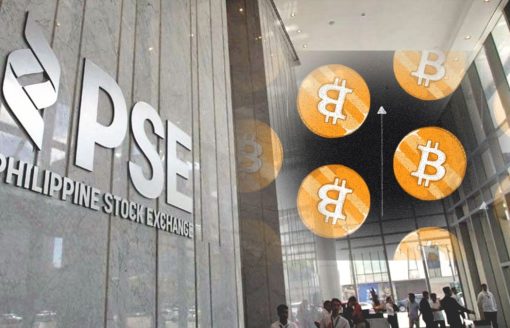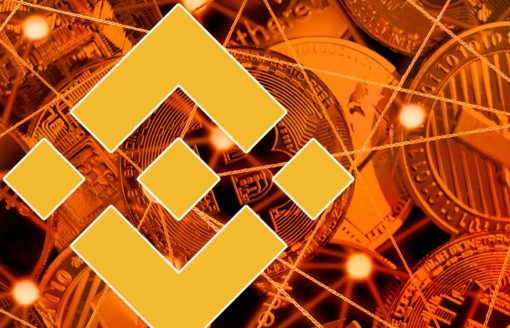Indian cryptocurrency businesses move in droves to Dubai in order to avoid the high local taxes and take advantage of the welcoming regulatory climate in the emirate.
The RBI Remittance Survey 2021 reveals that India’s expatriates, constituting 30% of the population in the United Arab Emirates (UAE), contribute to 18% of India’s US$110 billion in global remittance inflows. Beyond remittances, the financial relationship between these two nations now extends into the Web3 space, an emerging version of the internet built on blockchain technology.
Stay in the know on crypto by frequently visiting Crypto News Today
India and the United Arab Emirates saw a rise in bilateral trade to US$85 billion last year, and both nations are looking into integrating their central bank digital currency (CBDC) initiatives.
Over 90,000 Indian companies are registered with the Dubai Chambers in Dubai, the most populous city in the United Arab Emirates. Over 300 Indian startups attended GITEX, the largest tech event in the city, which is three times more than the previous year.
India is currently the second-largest cryptocurrency market in the world by raw transaction volume, having topped the Chainalysis Global Crypto Adoption Index in 2023. However, local players are being encouraged to seek out Dubai’s burgeoning crypto ecosystem as an oasis, as the local industry has been drying up as a result of the government’s strict tax rules.
Many Web3 founders would rather base themselves in Dubai or Singapore due to the regulatory clarity and certainty as well as the stronger community support in these places. Investors feel more at ease investing in a jurisdiction where there are no last-minute surprises when starting a business. Chief executive of the Indian cryptocurrency exchange CoinDCX, Sumit Gupta, recently said, “I am beginning to see this trend on the ground and it must be reversed.”
“We have seen a decline of more than 90% in volumes. That’s a huge, steep decline. And what you have seen is that India continues to be number one when it comes to grassroot crypto adoption, but a lot of that activity is happening on alternative channels because of the high tax rates,” said Gupta.
In the previous year’s budget announcement, Finance Minister Nirmala Sitharaman introduced a 30% tax on cryptocurrency trading profits, along with a 4% cess and any applicable surcharge.
The implementation of a 1% tax deducted at source, or TDS, on cryptocurrency transactions exceeding Rs 10,000 this year brought additional bad news for Indian cryptocurrency traders. A 15% interest rate on late payments, a penalty equal to the outstanding amount, and in certain situations, a jail sentence are the consequences of not paying TDS, as stated in an amendment to the Income Tax Act.
Gupta speculates that the “regulatory arbitrage” might not last very long. An interview request was made, but the Indian Finance Ministry did not offer a response or commentary.
“There is a regulatory arbitrage that needs to end because it cannot continue for long. That’s something the government knows. When they choose to eliminate that arbitrage is what matters. According to Gupta, it is not scalable, dependable, or compliant to serve Indian clients from abroad.
However, the wave of Indian cryptocurrency firms heading towards Dubai is being driven by low taxes, ease of setting up shops, a dedicated regulator, and access to international markets like Asia and Europe.
CryptoCaster Quick Check:
Through Dubai, crypto projects can interact with the rest of the world. When it comes to newly established businesses, the UK, China, India, US, and Russia make up the top 5%. At the Future Blockchain Summit, Belal Jassoma, head of business development at the Dubai Multi Commodities Centre (DMCC), stated that Dubai is essentially a hub.
3,700 of the more than 23,000 businesses that call DMCC home are Indian. In an effort to increase the number of its members and offer Indian companies specialized licenses, it established a representative office in Mumbai last year.
There are 550 Web3 businesses in its dedicated Crypto Center, 50 of which are in India. At the Future Blockchain Summit, the DMCC Crypto Centre welcomed the Solana Foundation as an ecosystem partner. It is home to a number of Web3 businesses, such as the cryptocurrency exchange Bybit, the maker of digital asset markets DWF Labs, the Web3 incubator TDeFi, and the venture capital firm Brinc.
Virtual Assets Regulatory Authority (VARA), the city’s specialized regulator for digital assets, is in charge of cryptocurrencies and associated activities in all of Dubai’s free zones with the exception of the Dubai International Financial Centre (DIFC). Through the Abu Dhabi Global Market, the UAE capital of Abu Dhabi offers a comparable range of services (ADGM).
According to Sunita Khatri, Commercial Director of Dubai World Trade Centre (DWTC), “VARA has crafted its regulations to be agile in addressing global market risks and adaptable to market demands, aiming to attract entrepreneurs to solidify Dubai’s position as a central hub for Web3.”
Indian Unicorn exchange Eyes Expansion into the MENA Region
One of the nations that comprise the Middle East and North Africa (MENA) region is the United Arab Emirates. Chainalysis reports that between July 2022 and June 2023, the region’s crypto economy accounted for an estimated US$400 billion, or 7.2% of all transactions globally. This places it as the sixth largest in the world.
“The Middle East and North Africa (MENA) presents CoinDCX with an intriguing prospect as the market is expanding rapidly, adoption rates are high, and Web3 can open up a lot of doors in the India-UAE corridor.” From that area, new use cases involving payments and remittances are emerging, according to Gupta.
According to a notice from VARA, BitOasis, an online cryptocurrency trading platform with headquarters in the United Arab Emirates, had its license revoked for “not meeting mandated conditions, required to be satisfied within 30-60 day timeframes.” The exchange that received funding from CoinDCX reported that it is collaborating with the regulator to complete the outstanding requirements.
“CoinDCX used BitOasis as a strategic investment approach to potentially make a direct impact in foreign markets through partnerships with like-minded companies that share our values and mission.”
It extends beyond India
The most populous nation in the world and the sixth-largest economy in terms of nominal gross domestic product, India, is not the only one enforcing stricter regulations on cryptocurrency enterprises.
Australia has made little headway in regulating cryptocurrencies. Australian cryptocurrency exchanges might not receive a license until 2025, and the nation hopes to publish draft legislation for the licensing and custody of cryptocurrency asset providers in 2024.
Leading Australian banks, such as the Commonwealth Bank (CBA), imposed regulations on cryptocurrency exchanges, blaming them for being “scams.” Binance Australia had to stop accepting deposits and withdrawals from customers due to debanking.
The CEO of Australian cryptocurrency exchange BTC Markets, Caroline Bowler, stated, “We’ve always been an Australian only exchange, but with the difficulties and challenges around licensing and the time it’s taken for that to come through to fruition, we’re now actively looking to expand overseas.”
“Dubai benefits from having chosen something extremely specialized and customized. Additionally, based on the way they phrased it, it appears that they intend to develop this industry over time.
With the recent acquisition of an operating license in Dubai, customers in Dubai can now access the services of the largest cryptocurrency exchange globally. The cryptocurrency exchanges Bybit and Gemini are also applying for licenses in the UAE.
American-based Brian Armstrong of Coinbase has held talks with UAE regulators regarding the establishment of a second headquarters in the nation, with the aim of tapping into the markets of the Middle East, Africa, and Asia. Three days after its April 2022 launch, Coinbase halted operations in India because of problems with the regional digital payment provider. One factor mentioned was informal pressure from the central bank of India. Although the exchange is no longer operational in India, its tech hub and wallet services are still available.
The Dubai Financial Services Authority (DFSA) has approved the use of Ripple’s XRP within the Dubai International Financial Centre (DIFC). The DIFC now permits licensed virtual asset companies to include XRP in their service offerings.
“Dubai continues to demonstrate global leadership when it comes to the regulation of virtual assets and nurturing innovation,” stated Ripple CEO Brad Garlinghouse in a press release.To reach the full potential of cryptocurrency, Ripple intends to intensify its presence in Dubai and to maintain close collaboration with regulatory bodies.
MENA is home to 20% of Ripple’s clientele.
According to Jimmy NGuyen, CEO of Web3 venture advisory firm New Win Global, “exchanges like Coinbase and other major players have announced that they’re going to be applying for licenses here. This is because the U.S. regulatory climate has been relatively hostile or unclear for digital asset businesses.”
“And the reason is that, since the establishment of the Virtual Assets Regulatory Authority and the publication of guidelines and policies regarding the necessary licenses, Dubai has been proactive in bringing regulatory clarity. Exchanges and other providers of digital asset services are thus establishing second headquarters all over the world.
The cryptocurrency lender Nexo, based in the UK, is growing in the UAE with the goal of taking up 30% of its global footprint. The action comes after the Securities and Exchange Commission (SEC) imposed penalties on a cryptocurrency lending product in the US, for which Nexo made settlement payments to regulators totaling US$45 million.
By 2024, the U.K. government hopes to regulate the cryptocurrency market and bring it into compliance with the laws governing conventional banks and financial services.![]()
We hope you appreciated this article. Before you move on, I was hoping you would consider taking the step of supporting CryptoCaster’s journalism.
From Elon Musk, Larry Fink(BlackRock) to Jamie Dimon(JP Morgan Chase) a number of billionaire owners have a powerful hold on so much of the hidden agendas’ which eludes the public concerning the paradigm shift juxtaposed by cryptocurrency and web3 emerging technologies. CryptoCaster is different. We have no billionaire owner or shareholders to consider. Our journalistic efforts are produced to serve the public interest in crypto development and institutional disruptions – not profit motives.
And we avoid the trap that befalls much U.S. and global media – the tendency, born of a desire to please all sides, to engage in false equivalence in the name of neutrality and retail consumer protection. While fairness and transparency dictates everything we do, we know there is a right and a wrong position in the fight against fiat global banking interest and monetary reconstruction precipitated by the emerging crypto ecology.
When we report on issues like the FTX, Binance and Ripple crisis, we’re not afraid to name who or what is uncovered. And as a crypto sentinel, we’re able to provide a fresh, outsider perspective on the global monetary disruption – one so often missing from the insular American and European media bubble.
Around the world, readers can access the CryptoCaster’s paywall-free journalism because of our unique reader-supported model. That’s because of people like you. Our readers keep us independent, beholden to no outside influence and accessible to everyone – whether they can afford to pay for news and information, or not.
We thankyou for the on-going support our readers have bestowed monetarily. If you have not considered supporting CryptoCaster, if you can, please consider supporting us just once from $1 or more of Bitcoin (satoshi) or Eth, and better yet, support us every month with a little more. Scroll further down this page to obtain CryptoCaster’s wallet addresses.
Thank you.
Kristin Steinbeck
Editor, CryptoCaster
Please Read Essential Disclaimer Information Here.
© 2024 Crypto Caster provides information. CryptoCaster.world does not provide investment advice. Do your research before taking a market position on the purchase of cryptocurrency and other asset classes. Past performance of any asset is not indicative of future results. All rights reserved.
Contribute to CryptoCaster℠ Via Metamask or favorite wallet. Send Coin/Token to Addresses Provided Below.
Thank you!
BTC – bc1qgdnd752esyl4jv6nhz3ypuzwa6wav9wuzaeg9g
ETH – 0x7D8D76E60bFF59c5295Aa1b39D651f6735D6413D
MATIC – 0x7D8D76E60bFF59c5295Aa1b39D651f6735D6413D
LITECOIN – ltc1qxsgp5fykl0007hnwgl93zr9vngwd2jxwlddvqt
CRYPTOCASTER HEATMAP






